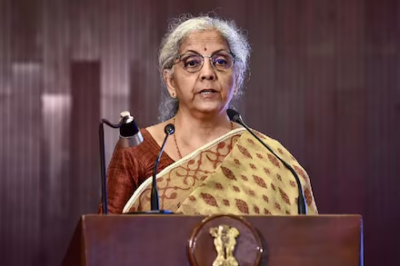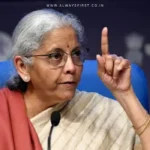
- Redefining Patriarchy: Finance Minister Nirmala Sitharaman describes patriarchy as a “Leftist concept,” urging young women to challenge social norms and pursue leadership.
- Highlighting Role Models: She emphasizes historical figures like Indira Gandhi as examples of female resilience in Indian society, arguing patriarchy doesn’t fully hinder progress.
- Controversial Stance: While aiming to inspire, her remarks have sparked debate on whether her stance downplays real struggles against patriarchy in India.
Reassessing Patriarchy and Women’s Potential in India
Is labeling patriarchy as a concept, rather than a lived experience, truly empowering for women? Sitharaman’s comments at CMS Business School are an invitation to re-evaluate the concept of patriarchy in the Indian context. Pointing to female figures in leadership, from former Prime Minister Indira Gandhi to contemporary innovators, Sitharaman argues that Indian society has historically provided spaces for women to excel. Her remarks suggest that while barriers exist, they are not insurmountable, encouraging women to pursue empowerment within the current system.
Government Programs for Youth and Female Empowerment
In her discussion, Sitharaman highlighted government initiatives designed to create a supportive ecosystem for youth and women, with a particular emphasis on innovation and skill development. She outlined policies fostering STEM engagement and entrepreneurial opportunities for women, citing these as evidence of the government’s commitment to bridging gender divides. Programs in STEM, skill development, and internships are opening doors for young women, potentially reshaping India’s professional landscape.
Role Models and the Reality of Patriarchy
While Sitharaman references figures like Indira Gandhi to emphasize Indian women’s capabilities, some argue this perspective doesn’t account for the ongoing challenges many women face. The Finance Minister’s comments about “patriarchy as a concept” have fueled debate on whether her stance risks minimizing the real struggles against systemic gender discrimination. For many, the persistence of patriarchy remains a significant barrier, making it vital to balance the acknowledgment of role models with the reality faced by the majority of women.
Empowerment with a Nuanced Approach
Sitharaman’s message encourages women to assert their independence and seek leadership roles despite traditional norms. However, her stance raises questions about the importance of validating the experiences of those affected by patriarchy. While her intention may be to inspire women to overcome societal constraints, critics argue that empowerment efforts must also address the structural barriers that women face.
The Debate on Modern Women’s Empowerment
Ultimately, Nirmala Sitharaman’s remarks open a conversation on the complexities of women’s empowerment in India. While some see her words as motivational, others believe a more nuanced approach is necessary, one that acknowledges both the achievements of past leaders and the ongoing challenges women encounter today.








































Leave a Reply